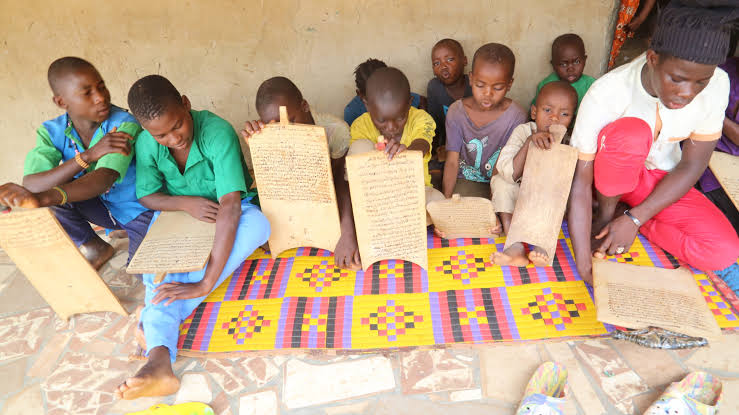Education: How Government Can Tackle the Almajirai Menace in Nigeria

Education: How Government Can Tackle the Almajirai Menace in Nigeria
The Almajirai system, a centuries-old Islamic learning structure originally designed to provide religious education, has in modern times become a pressing social and educational challenge in Nigeria. Thousands of children, often sent by their parents to study under Islamic teachers in distant communities, now roam the streets without adequate access to formal education, healthcare, or welfare support. Many of them are forced into begging as a means of survival, leaving them vulnerable to exploitation, crime, and poverty. Addressing this menace requires deliberate and coordinated government intervention that balances respect for religious traditions with the urgent need for reform.
One of the most critical steps the government can take is to integrate the Almajirai system into Nigeria’s broader educational framework. Rather than attempting to abolish it outright, which has often sparked resistance, the government should work with religious leaders to reform the system. This can be achieved by providing modern Qur’anic schools where Islamic studies are taught alongside subjects like English, Mathematics, Science, and vocational training. By doing so, Almajirai children would be equipped with both spiritual knowledge and practical skills, preparing them for gainful employment and meaningful participation in society.
Another measure is the enforcement of compulsory basic education laws. While Nigeria already has legislation mandating free and compulsory education at the primary and junior secondary levels, implementation remains weak. Government must strengthen enforcement, ensuring that parents who neglect their responsibility to enroll children in school face appropriate sanctions. At the same time, incentives such as school feeding programs, scholarships, and educational grants can encourage families, particularly those in rural and impoverished areas, to send their children to school instead of consigning them to the streets.
Teacher training and curriculum development are equally essential in tackling the Almajirai menace. Governments at both state and federal levels should invest in training Islamic teachers so they can deliver both religious and secular subjects effectively. This would not only improve the quality of education but also build trust among parents who may otherwise be skeptical of western-style schooling. Additionally, designing culturally sensitive curricula that integrate Islamic values with civic and life skills can help bridge the gap between tradition and modernity.
Beyond education, addressing poverty is central to reducing the Almajirai phenomenon. Many parents send their children away because they cannot afford to care for them. Governments must therefore expand social protection programs that support vulnerable households, provide access to healthcare, and promote job opportunities. When families are economically stable, they are less likely to rely on the Almajirai system as a survival strategy.
Public sensitization is another critical tool. Many communities view the Almajirai system as a religious duty or cultural heritage. The government, in collaboration with traditional rulers, religious clerics, and civil society, must raise awareness about the dangers associated with child neglect, street begging, and lack of education. Community-driven campaigns can help shift mindsets, making parents more willing to embrace reformed educational systems.
Finally, political will is indispensable. Over the years, different administrations have launched policies and programs targeting the Almajirai, but most have been poorly sustained due to changes in leadership and lack of commitment. To break this cycle, government must establish long-term policies backed by adequate funding and robust monitoring. Collaboration with international development partners can also provide additional resources and technical expertise to strengthen interventions.
Tackling the Almajirai menace is not merely an educational issue; it is a social, economic, and moral responsibility. If left unaddressed, it perpetuates a cycle of poverty, illiteracy, and insecurity. But if approached with sincerity, inclusiveness, and consistency, Nigeria can transform the Almajirai system into a source of strength—producing children who are not only spiritually grounded but also empowered to contribute positively to national development.






